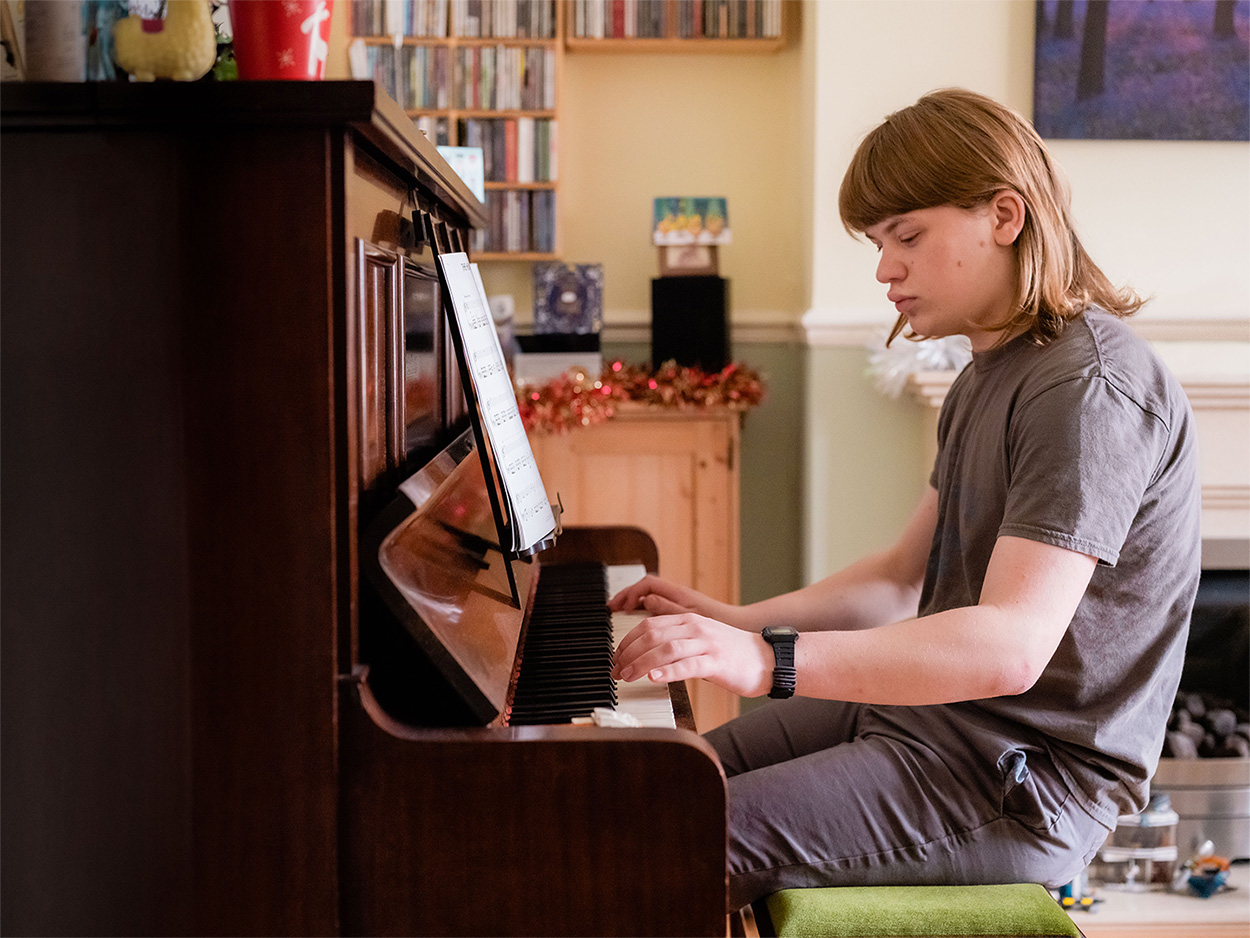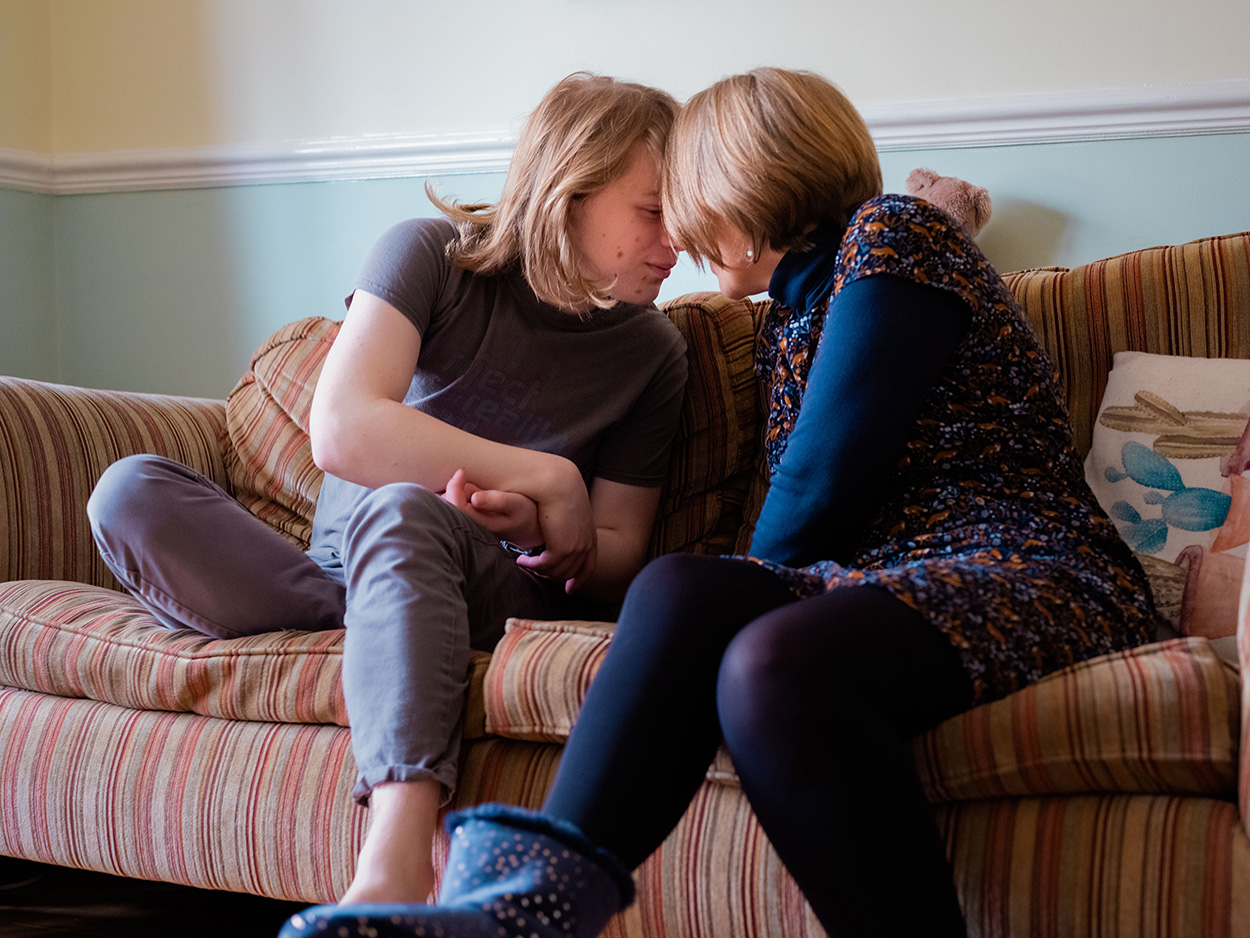Sam is 19 years old, he attends College and lives with his Mum and Dad, Wendy and Tim. Like many other young people, having independence is important to Sam and he has clear dreams and aspirations for the future: “I want to have friends and make films. I am not sure if I want to make films as a job or as a hobby, but I would like a job to help pay for things.”
When Sam was diagnosed with autism, mum, Wendy began developing her knowledge of autism by attending various talks and conferences. Today, Wendy proudly admits that learning about autism has become her passion and her purpose. Wendy talks openly about why it is key to give autistic children support from an early age and believes that by doing this “we can enable people with autism to live fulfilling lives and be able to access their communities successfully.”
The importance of autistic people gaining independence is echoed in Wendy’s thoughts on the necessity for research; “research into things which can successfully support autistic individuals helps me to support Sam better and to reach our goal of him living a full and independent life.”
Unfiltered Lives - Wendy and Sam
Wendy has seen first-hand the positive impact that the Autism Centre for Education and Research (ACER) has had on autism education, specifically the research studies which have become the basis of the Autism Education Trust’s programme, which enables schools to rate themselves on how well they are supporting their Children and Young People (CYP) with autism, as well as offering programmes of training to the staff of educational settings.

Recently ACER carried out research focused on exclusions, as currently Children and Young People with Special Educational Needs and Disabilities (SEND) are more likely to receive fixed term and permanent exclusions compared to their peers who do not have these difficulties. Wendy thinks this work is vital as, “it helps to keep exclusions at the forefront of people’s minds and particularly helps schools and Local Authorities form an informed response through their policies and procedures. The research ACER conducts also has value at governmental level and can support national policy change.” Wendy continued to explain that it is essential to see behaviour as an opportunity, “to support and engage with the young person rather than seeing it as a challenge. All staff need to have an attitude of ‘how can we help improve this experience for this child’. If we can improve the experience for the child, then everyone will benefit.”
Sam’s experience of secondary school was a positive one for him and his family. “The staff really got to know him so well and the structure and routine of his environment really helped him.” Sam had access to systems and support mechanisms that were adhered to by all staff so there was always a common approach. For example, “they used to write down instructions or give him a copy of the PowerPoint they were using as they understood that he did not fully take in verbal instructions and that he needed something to refer back to. This helped him to access his learning more successfully.” Through Sam’s experience of school it has been important to keep the lines of communication open and to maintain a positive attitude with staff, “as the ultimate goal is for everyone to be working together in the best interests of your child.”

When reflecting on the coronavirus pandemic, in the words of Sam, “I’d like to think I adapted quite well to the change”, and mum Wendy would agree: “I was proud of how hard he worked and the effort he put in.” Spending extra time at home posed a big change for Sam’s schooling but gave him the opportunity to develop his independence further - he made his own lunch every day and set up his own timetable to work to. Wendy, Tim and Sam worked together on confronting the anxieties the pandemic caused but enjoyed a daily walk together for exercise and some time to talk.
As Wendy works professionally in the field of autism education and it has shaped her family life we asked what advice she would give to other parents to best support their autistic child, with clarity and eloquence she said: “help your child to feel loved and secure for who they are, whatever is going on around them, because they are amazing!”
More about the research
Autism education resources
Shardia and Patrick's story